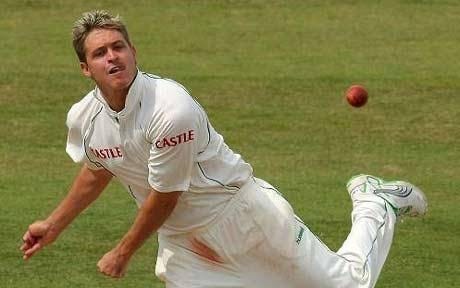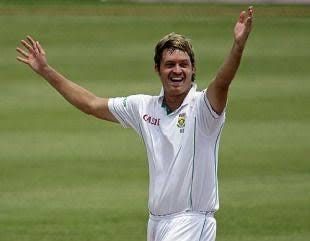Edgbaston, 2008. Graeme Smith played one of the great innings in South African Test history. Not just because it was in the fourth innings to win both the match and the series, but because his team had plunged to 93-4 chasing an improbable 281 for victory.
But because of the tenacity, temperament and skill he displayed against a fired-up Andrew Flintoff bowling at his fastest and against Monty Panesar, at his peak, enjoying appreciable spin and bounce. The Birmingham crowd was at its thirstiest and loudest. For hours the atmosphere was more football than cricket.
Everybody in the stadium, nay – everybody in the country – was convinced England were going to win the game, level the series and travel to the Oval as strong favourites to win. Captain Michael Vaughan later admitted that he “never for a moment believed we wouldn’t win the game.” And indeed, they should have. But not on that final afternoon, not even in the extra half hour claimed by the tourists.
England were 20 minutes away from invincibility in the Test match midway through the third afternoon. Having conceded a first innings deficit of 83 the hosts had not just rebuilt the innings but were in such control they were dominating a weary and despondent bowling attack. Paul Collingwood’s fighting century had done the hard work and his partner in a stand of 115 was on the verge of butchering South Africa’s dreams.
Kevin Pietersen had reached 94 from just 136 deliveries and was in his pomp and element. He was drinking in the atmosphere as greedily as the supporters were their lager. And that was when it all changed. Captain Smith and his trusty, canny hand-brake, Paul Harris, rolled some desperate dice. Mid on was posted 15 metres from the boundary and the left arm spinner produced one of the best deliveries of his career. From his mouth:
“Go on KP, get there with a six, you know you can do it big boy, the crowd will love you! Come on KP, get there in style…” [Exact quote cannot be verified.]
He couldn’t resist it. He just couldn’t.
Perhaps trying to hit the ball too hard, it slewed off an inside edge, swirled a little as the air was sucked out of the stadium by the collective gasp of 25,000 people, and landed safely in the hands of AB de Villiers - exactly where he’d been positioned.
Pietersen won many games of cricket for England because he was fearless, using his ego to his adopted team’s advantage far more often than not. If he had refused the bait, he would almost certainly have made 150 and given his bowlers the chance to win the match and square the series. But he didn’t. Couldn’t. The door to England’s lower order was opened, they were bowled out for 363 and Smith had the opportunity to score his famous 154 not out. It felt like the natural course of history had been changed.
I was reminded of the moment when Rishabh Pant played that spectacularly awful shot at a critical stage of the Wanderers Test between South Africa and India. There were many differences, of course. Pietersen had already scored 96 magnificent runs and the Indian wicket keeper was facing just his third delivery having scored none at all. But the knife-edge on which both games were residing was entirely similar. If Pant and Pietersen had scored just 30 more runs, they could have changed both Test matches.
Credit for Pant’s dismissal might well belong entirely to Kagiso Rabada who bowled him a vicious bouncer the delivery before which crashed into his gloves in front of his helmet grille. But there is a very real possibility that whatever Rassie van der Dussen said to him in the minutes before he faced his three deliveries, and between them, may have played at least as significant a role in the wild, charging slog he aimed at Rabada and edged to the wicket keeper.
With Pant’s departure India subsided meekly and South Africa’s target was 240 rather than 280 or 300, vastly different prospects. As in 2008, South Africa had an outside chance rather than none at all. And as Smith did in Birmingham, Dean Elgar did in Johannesburg – led from the front with an innings of the greatest determination and fortitude for a famous victory. Harris was at least credited with a wicket. Van der Dussen’s 40-run contribution to the chase was extremely welcome, possibly even vital, but if the salt in his words to Pant caused the batter to curdle, they may have been even more important.
The merit of ‘talk’ on a cricket field has been debated for centuries – literally. Mostly it is pointless and often counter-productive. There is no question, however, that it occasionally works, and to great effect. Target the ‘ego player’, at the right time, employ your best talker, set a trap, be strategic. Roll the dice. No need to be abusive, that almost always fails.





Brilliant read, thanks Neil. Unfortunately I will not see you at Newlands. Ordinary fans are not wanted. I don't foresee any changes to the team, do you? Keshav may bowl 3 overs, one before lunch, one before tea & another before the close... But he was left out of the team v this time ;) Pakistan in 2019, so just maybe another batsman in? Cheers.